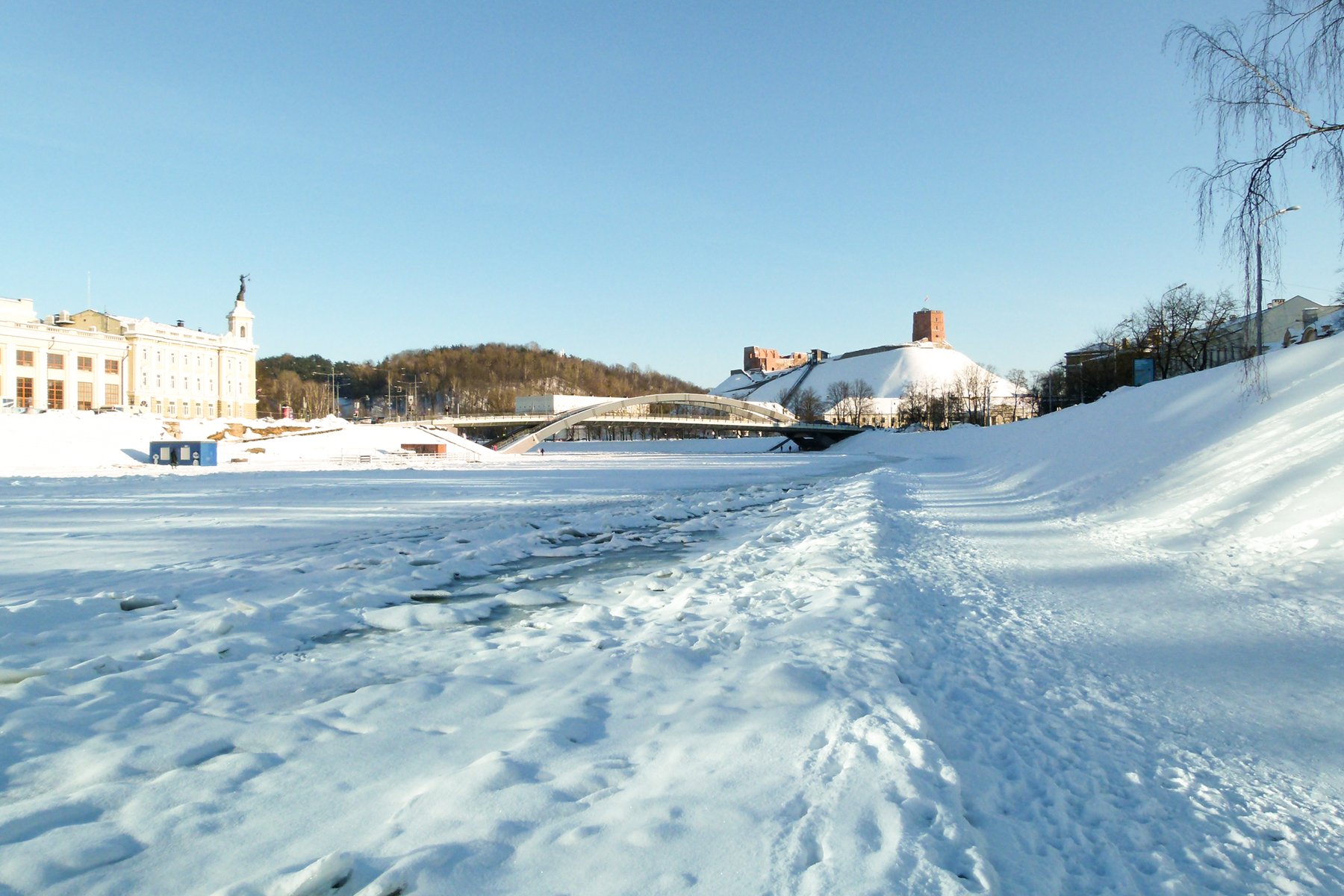Vilnius. Part II
Vingis Park at dusk.
Following my last blog post, you kindly asked many follow-up questions, therefore, here is part II:
Vilnius is the greenest city in Europe and the 3rd in the world (Husqvarna City Green Space Index, published in 2021); it has eight protected nature reserves and many parks and gardens.
What do Leonard Cohen, John Lennon, Frank Zappa have in common? Although they don't always have an obvious link with the city, in Vilnius you can find sculptures / memorials for the musicians. Vilnius hosts several important music festivals: Vilnius Festival, Street Music Day, Vilnius JAZZ, Banchetto Musicale, The Lithuanian Song Celebration and others.
There is a popular Meet a Local programme for visitors and foreign tourists in Vilnius, in which I too participate.
Gothic Church of St. Anne as seen from the tower of Renaissance Church and Monastery of St. Francis and St. Bernard in Vilnius.
Vilnius is known as a predominantly Roman Catholic and Baroque city (e.g. Church of St. Peter and St. Paul with over 2,000 stucco figures interior and well worth a visit), although there are also Gothic (e.g. Church of St. Anne), Renaissance (e.g. Church of St. Stephen), Classicistic buildings (e.g. Vilnius’ Cathedral, Vilnius’ City Hall), as well as many houses of worship of other religions.
Vilnius is a film destination for foreign production companies. There are more than 75 motion pictures filmed on location in Vilnius. To name just a few: Young Wallander (2020–), Chernobyl (2018), Beforeigners (2019–), Catherine the Great (2018), Stranger Things (2016–), Jack The Ripper (2016), War and Peace (2015), Anna Karenina (2012), Surviving D-Day (2010), Kronjuvelerna (2010), Transsiberian Express (2008), War and Peace (2007), 9/11– The Twin Towers (2006), Elizabeth I (2005), Silence Becomes You (2004–2005), Dr. Jekyll and Mr. Hyde (2003).
Christmas in Vilnius.
For several years in a row, Vilnius’ Christmas tree was selected as the most beautiful in Europe. Exploring the Christmas market, artisanal shops and boutiques as well as the local cuisine in Vilnius are a definite must-do.
GoVilnius tongue in cheek Christmas 2021 Campaign – Christmas in Vilnius: Amazing wherever you think it is.
Before World War II, Vilnius was one of the largest Jewish centres in Europe. Gaon Elijah, the most renowned Jewish scholar of the eighteenth century, lived and worked in Vilnius. Due to his immense contribution, Vilnius became the centre of Jewish spirituality and a “cultural citadel”. In the first half of the 20th century, Vilnius' Jewish population grew to nearly 100,000, about 45% of the city's total.
For history lovers: Museum of Occupations and Freedom Fights, also a Genocide and Resistance Research Centre, housed in the former KGB headquarters, it includes the former prison for dissidents. Confronting, sometimes painful, but definitely worth a visit.
This is what -25 °C looks like, and the River Neris is frozen solid. Vilnius in January 2021, one of the coldest winters on record.
Over the “outside months” of 2020-21, Vilnius became one large open air café – it is also a quirky, hip and interesting city to live in. Vilnius is very safe, clean, people are well-educated, hospitable and generally well-travelled.
It’s easy to reach Vilnius with a direct flight from most of the capitals or bigger cities of Europe with Air Baltic, SAS, KLM, Wizz Air, Ryanair, Brussels Airlines, Lufthansa, and others.


